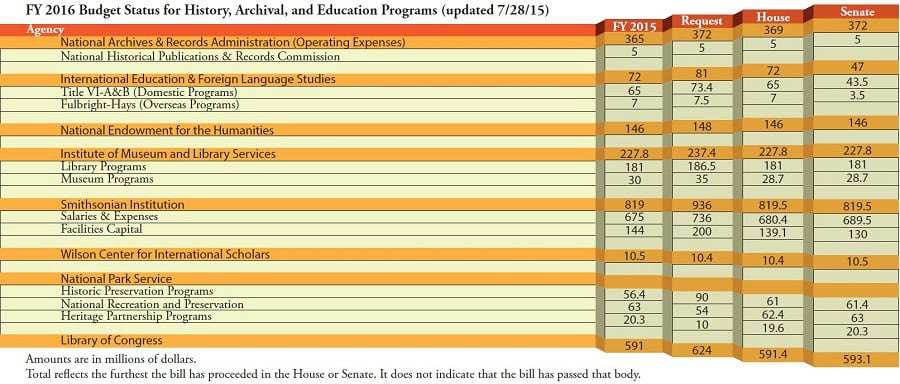As this is being written in mid-September, it is becoming increasingly likely that the nation is once again going to endure a federal government shutdown when the current fiscal year expires on September 30. One thing that’s certain is that at midnight on October 1, Congress and the administration won’t be ringing in the new fiscal year—not with champagne or party favors, at any rate. Instead the American public will be treated to the usual partisan rancor and finger-pointing we have come to expect and loathe.
For a brief time this past summer, it seemed as though there might be a chance for a partial breakthrough. For the first time in six years, both the House and Senate Appropriations Committees completed action on 12 funding bills before the August recess. In fact, the House was able to pass six appropriations bills.
Nonetheless, it appears that none of the bills will pass both houses before the end of the fiscal year. The stalemate is over whether legislators will adhere to the budget caps that were imposed as part of the sequestration process. Republican leaders have said they won’t budge on that demand, while Democrats are calling for an increase in discretionary spending. Also clogging up the process are numerous fights over policy issues. For example, Republicans are seeking to bar federal funding for Planned Parenthood and for implementing the nuclear deal with Iran.
Eventually, Congress will revert to its usual tactic of passing a continuing resolution (or, more likely, multiple CRs) to keep the federal government operating. There has been talk of passing a larger budget deal along the lines of the Ryan-Murray agreement that has been in effect for the past two years. But getting congressional Republicans and Democrats to agree on a macro level of funding and then securing President Obama’s approval is a steep hill to climb.
The chart below shows the current status levels of funding for programs of interest to our community. The numbers shown reflect the furthest each agency’s budget has gotten through the process. Some bills have passed the House, while none of the Senate bills have been considered on the floor. As you can see, funding for most programs remains close to FY 2015 levels.

Table
The one outlier is the $25 million, or 35 percent, funding reduction to the international education and foreign language studies programs (Title VI and Fulbright-Hays) under the Senate FY 2016 Labor, HHS, Education, and Related Agencies Appropriations Bill (S.1695). Title VI and Fulbright-Hays are the federal government’s most comprehensive programs for developing and maintaining a steady supply of graduates with deep expertise on foreign languages and cultures, international markets, world regions, and global issues that support our diplomatic, defense, commercial, and educational interests, and they have already sustained deep cuts. Both the coalition and the AHA have gone on record opposing these drastic cuts.
If our elected officials follow past practice, the congressional Christmas tree will be lit well before an FY 2016 budget is passed. Stay tuned!
This work is licensed under a Creative Commons Attribution-NonCommercial-NoDerivatives 4.0 International License. Attribution must provide author name, article title, Perspectives on History, date of publication, and a link to this page. This license applies only to the article, not to text or images used here by permission.

